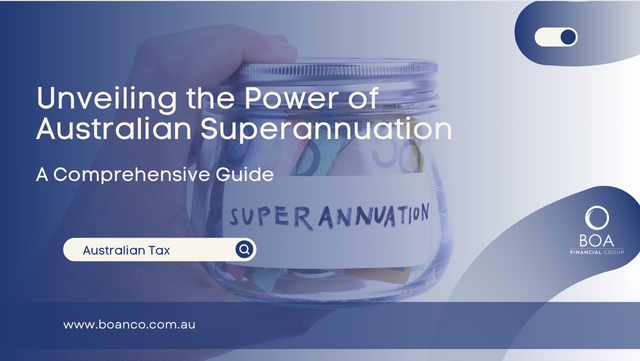
A Comprehensive Guide
In Australia, the concept of superannuation holds tremendous significance for individuals’ financial well-being in their post-retirement years. Understanding how Australian superannuation works and optimizing its benefits is crucial for long-term financial security. In this article, we delve into the ins and outs of Australian superannuation, exploring its features, contribution options, investment strategies, and associated considerations.
1. What is Australian Superannuation?
Australian superannuation refers to a system of compulsory retirement savings designed to provide income support to individuals during their retirement years. It functions as a long-term investment vehicle, allowing individuals to accumulate funds over their working lives. Superannuation aims to bridge the gap between government pensions and the desired standard of living in retirement.
2. Contribution Options
There are several ways to contribute to your superannuation:
a. Employer Contributions: Most Australian employers are obligated to contribute a portion of their employees’ salaries (currently 10%) into a superannuation fund. These contributions, known as Superannuation Guarantee (SG) contributions, form the foundation of an individual’s retirement savings.
b. Personal Contributions: Individuals can make voluntary personal contributions to their superannuation fund, either before or after tax. Pre-tax contributions, also called concessional contributions, may offer tax advantages, while post-tax contributions, known as non-concessional contributions, are made from an individual’s after-tax income.
c. Spouse Contributions: Eligible individuals can make contributions to their spouse’s superannuation account, providing potential tax benefits and boosting their spouse’s retirement savings.
3. Investment Strategies
Superannuation funds offer a range of investment options tailored to different risk appetites and financial goals. These options typically include diversified portfolios comprising of:
a. Growth Assets: Such as shares, property, and alternative investments, which have higher potential returns but also carry higher risks.
b. Defensive Assets: Such as cash, fixed interest securities, and bonds, which are considered safer but offer lower returns.
The choice of investment strategy should align with an individual’s risk tolerance, time horizon, and retirement objectives. Regularly reviewing and adjusting investment strategies as circumstances change is crucial.
4. Tax Considerations
Superannuation enjoys favourable tax treatment in Australia. Key tax considerations include:
a. Concessional Contributions: Contributions made before tax are taxed at the concessional rate of 15%, which may be lower than an individual’s marginal tax rate.
b. Investment Earnings: Investment earnings within a superannuation fund are generally taxed at a maximum of 15%, creating a tax-efficient environment for long-term growth.
c. Withdrawals in Retirement: Withdrawals made after reaching preservation age and meeting certain conditions are generally tax-free.
5. Preservation and Access
Superannuation funds are subject to preservation rules, which restrict access to accumulated funds until an individual reaches their preservation age (currently between 55 and 60, depending on birth year) and meets specific conditions. Preservation rules aim to ensure that superannuation funds are used solely for retirement purposes.
6. Government Support and Regulations
The Australian government provides support and regulatory oversight for the superannuation system. Policies such as the Superannuation Guarantee and the Age Pension help enhance retirement savings and provide income support to eligible individuals.
7. Planning for the Future
To optimize your superannuation and ensure a comfortable retirement, it’s essential to:
a. Monitor your superannuation balance regularly and assess if your contributions are sufficient to meet your retirement goals.
b. Consider consolidating multiple superannuation accounts to streamline administration and reduce fees.
c. Seek professional advice from financial advisors and planners who can provide personalized guidance based on your circumstances and goals.
More questions?
If you have any questions about superannuation or any accounting/tax questions, please consult our accountants immediately to answer them for you!
